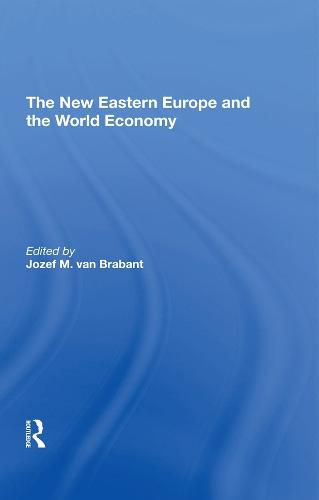Readings Newsletter
Become a Readings Member to make your shopping experience even easier.
Sign in or sign up for free!
You’re not far away from qualifying for FREE standard shipping within Australia
You’ve qualified for FREE standard shipping within Australia
The cart is loading…






The unprecedented economic, political, and social changes that have followed the east European revolutions of late 1989 rank among the epochal events of the twentieth century. The end of the cold war has opened up far-reaching possibilities for international economic cooperation, which may be able to stimulate economic growth in the region and revive interactions with the global economy. This collection of essays comes to grips with the problems of repositioning the new Eastern economies in the global arena. The contributors address four main themes: freeing up foreign economic sectors through trade liberalization, currency convertibility, and greater access to markets for international capital; the disintegration of the trade payment, pricing, and settlements systems based on the transferable ruble; active participation in the key organizations entrusted with international financial, monetary, and trading regimes; and strategies for using international economic assistance to alleviate adjustment costs with ongoing transition policies
$9.00 standard shipping within Australia
FREE standard shipping within Australia for orders over $100.00
Express & International shipping calculated at checkout
The unprecedented economic, political, and social changes that have followed the east European revolutions of late 1989 rank among the epochal events of the twentieth century. The end of the cold war has opened up far-reaching possibilities for international economic cooperation, which may be able to stimulate economic growth in the region and revive interactions with the global economy. This collection of essays comes to grips with the problems of repositioning the new Eastern economies in the global arena. The contributors address four main themes: freeing up foreign economic sectors through trade liberalization, currency convertibility, and greater access to markets for international capital; the disintegration of the trade payment, pricing, and settlements systems based on the transferable ruble; active participation in the key organizations entrusted with international financial, monetary, and trading regimes; and strategies for using international economic assistance to alleviate adjustment costs with ongoing transition policies